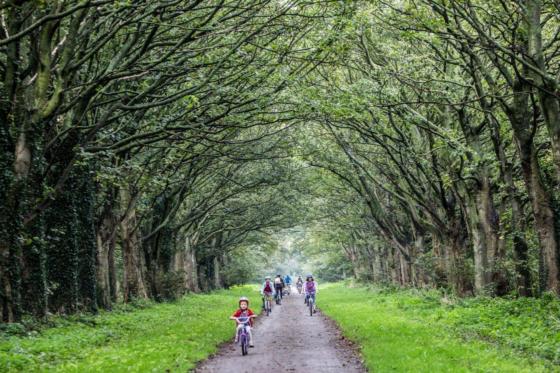People living in Wirral would like to see new cycleways and footpaths, a greater focus on health and wellbeing and communities not just homes.
Leverhulme says these were among the key areas highlighted following the publication of its Vision document in June.
Other respondents said a move towards “modern, biodiverse farmland” and increased access to the countryside were also important.
Leverhulme called for a wider debate on viable, sustainable and deliverable development in Wirral when it published its Vision earlier in the summer.
Leverhulme, the Wirral’s largest landowner with over 5,000 acres, says its Vision is in step with the Government’s ‘Building Beautiful Places’ plan published in July.
The plan calls for “beautiful, environmentally sustainable and life-enhancing communities” in which “good quality design will be paramount”.
The National Planning Policy Framework (NPPF) is being amended so that the Building Beautiful Places plan will mean residents and planners will find it easier to embrace beautiful, practical design while rejecting the ugly, unsustainable or poor quality.
The measures proposed are aimed at improving communities’ infrastructure, championing neighbourhood design and supporting walking and cycling to boost health and wellbeing.
The Leverhulme Vision says the scale of its landholding would enable Wirral to maximise the benefits of sustainable development and access to the countryside for everyone and provide for:
- Greater health and wellbeing;
- Communities and not just homes
- Beautiful homes for Wirral residents;
- New and enhanced public access;
- Enhanced biodiversity;
- Modern, biodiverse farmland;
- Better connected infrastructure including enhanced network of cycleways and footpaths;
- A thriving rural economy;
- Improved leisure and tourism facilities.
Nigel McGurk, Head of Land and Planning for Leverhulme, said: “We are pleased to see the desire for new cycleways and footpaths, something that was highlighted by the recent successful Leverhulme Summer Cycle which attracted several hundred cyclists.
“There is also a wish for communities and not just homes and recognition that we need to move towards modern, biodiverse farmland to create a future thriving rural economy.
“These are central to the Leverhulme Vision and, due to the size of its landholding, only the Estate has the capability to deliver benefits of this kind at a scale that will make a positive difference to people’s lives.
“There remains an urgent requirement for a more holistic debate and a need to move away from the simplistic and outdated approach which sees everything as ‘greenfield – bad, brownfield – good’.
“The only successful regeneration projects are the ones in which sufficient planning and investment have been made in the creation of strong, sustainable communities as well as beautiful homes.
“Planning is about everything – the land, the places and the place-making as a whole. That was the original idea behind creating local plans, but that seems to have been lost over the years as planning has become ever more a political football.
“There is currently a lot of discussion about levelling up. A key component of this should be giving people the opportunity to live in communities providing high quality, sustainable, viable and affordable housing wherever they are in the country.”
Leverhulme has a history of successful place-making. The 1st Viscount Leverhulme had the vision for Port Sunlight which is today still considered a leading example of model village excellence. Along with the 2nd and 3rd Viscounts, he also played a vital role in the development of the village of Thornton Hough.
Nigel said: “Almost 140 years ago, the 1st Viscount Leverhulme created a vision for Port Sunlight based on planning excellence, high quality design, vibrant communities and a strong agenda of health and wellbeing.
“Wirral has the opportunity to once again be known for world-class sustainable development, but only if it embraces the benefits that can be gained from a holistic approach which considers what’s best for Wirral people living and working across all of the peninsula.”
To read The Leverhulme Vision document in full visit
